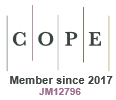General Relativity in the English-speaking World: The Contributions of Henry L. Brose
Historical Records of Australian Science
17(2) 169 - 195
Published: 10 November 2006
Abstract
The story of how the theory of general relativity found its way into the English speaking world during the Great War has often been told: it is dominated by the towering figure of the Cambridge astronomer Arthur Stanley Eddington, who (in 1916, and through the good services of the Dutch physicist Willem de Sitter) received copies of the papers Einstein had presented to the Berlin Academy in 1915. Eddington engaged in promoting the new theory, and in order to put one of its predictions — the bending of light in a gravitational field — to the test, he arranged for the famous expeditions to observe the eclipse of 29 May 1919 to be mounted, the results of which, presented in November of the same year, were the major breakthrough of general relativity and provoked a public interest unprecedented in the whole history of science.But a history of general relativity in the English-speaking world would be thoroughly incomplete if it did not take into account the contributions made by another, nowadays almost forgotten but at that time probably the most prolific and most dedicated of its popularizers, the Australian physicist and translator Henry L. Brose. Largely overlooked in recent accounts of the history of general relativity, Brose's rendering into English of a series of excellent German works on the theory was decisive for its understanding in the Anglo-Saxon world. The texts he chose (including Moritz Schlick's Space and Time in Contemporary Physics and Hermann Weyl's Space, Time, Matter) were among the first and most important that had so far appeared on the subject, and their English translations were published at a time when accounts of what was to be called 'one of the greatest of achievements in the history of human thought' were scarce and badly needed in Britain. Also, it will become clear from a closer look at both Brose's biography and the tense political situation between Britain and Germany shortly after the Great War, that hardly any of those works would have made its way into England so promptly (if at all) if not for Brose's enormous personal efforts and dedication. This paper retraces Brose's role as a translator and promotor of general relativity in its early days, thus shedding light on the mechanisms of knowledge transfer during and after the First World War.
https://doi.org/10.1071/HR06007
© Australian Academy of Science 2006


